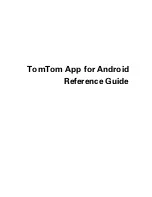
Media Flow Controller CLI Commands
Media Flow Controller Administrator’s Guide
324
ip
Copyright © 2010, Juniper Networks, Inc.
<dhcp-hostname>. This is a global configuration command that affects all DHCP
interfaces. Changing this setting forces a renewal of DHCP on all interfaces.
•
domain-list
—Add or delete (with no) domains to try unqualified hostnames in.
•
filter
—Configure IP filtering. The ip filter commands operate on nodes that are
implemented using IP tables, they implicitly operate only on the filter table.
•
chain <chain_name>
—Choose a chain name, FORWARD, INPUT, or OUTPUT and
take an action:
•
clear
—Delete all rules from the specified chain.
•
policy <policy>
—Set the policy (default target) for a specified chain, or reset
to its default (with no). All of the rules on this chain are overrides of this default.
Only these targets are allowed:
−
ACCEPT
—Accept all traffic by default for this chain. Default policy for OUTPUT
chain.
−
DROP
—Drop all traffic by default for this chain. Default policy for FORWARD and
INPUT chains.
•
rule <rule_number>
—Add a filtering rule to the specified chain (in the "filter"
table), overwrite an existing rule, or delete an existing rule. If you specify a chain
and rule using the no variant (no ip filter chain <chain_name> rule
<rule_number>), just that rule is deleted and higher number rules are moved to
close the gap. If you specify a chain and just the keyword rule using the no
variant, all the rules for that chain are deleted and the chain’s policy and baseline
are reset to their defaults. See
“ip filter chain rule arguments” on page 325
for rule
arguments.
−
move <rule_number> to <rule_number>
—IP filter rules are applied in the
order in which they are placed in the IP filter table. Use this command to move
a rule from one place in the IP table to another. Surrounding rules are re-
numbered to keep the numbers consecutive.
−
append tail target<target> <rule_argument>
—Add a new rule after all
the existing rules.
−
insert <rule_number> target<target> <rule_argument>
—insert a
new rule before the existing rule with the specified number; the number
specified must be that of an existing rule. The rule specified and all above it
are re-numbered to make room for the new rule.
−
set <rule_number> target<target> <rule_argument>
—Specify the rule
number of an existing rule to overwrite with the new rule. No attempt is made
to merge the old rule and new; the old one is obliterated.
−
modify <rule_number> target<target> <rule_argument>
— Specify the
rule number of an existing rule to modify. Only the parameters specified in
this invocation are changed; everything else is left untouched, except that
setting a criterion removes any corresponding not- criterion, and vice-versa.
•
enable
—Enable or disable (with no) IP filtering of network traffic. Default is disabled.
•
host
—Add or delete (with no) hostname/IP mappings for /etc/hosts.
•
map-hostname
—Set or delete (with no) a static host mapping for the current hostname.
•
name-server
—Add or delete (with no) DNS servers.
Содержание MEDIA FLOW CONTROLLER 2.0.4 -
Страница 6: ...Media Flow Controller Administrator s Guide VI Copyright 2010 Juniper Networks Inc...
Страница 24: ...LIST OF FIGURES XXIV Copyright 2010 Juniper Networks Inc...
Страница 37: ...Copyright 2010 Juniper Networks Inc 37 PART 1 Media Flow Controller Administration...
Страница 38: ...Media Flow Controller Administrator s Guide 38 Copyright 2010 Juniper Networks Inc...
Страница 285: ...Copyright 2010 Juniper Networks Inc 285 PART 2 Media Flow Controller Command and MIB Reference...
Страница 286: ...Media Flow Controller Administrator s Guide 286 Copyright 2010 Juniper Networks Inc...
















































